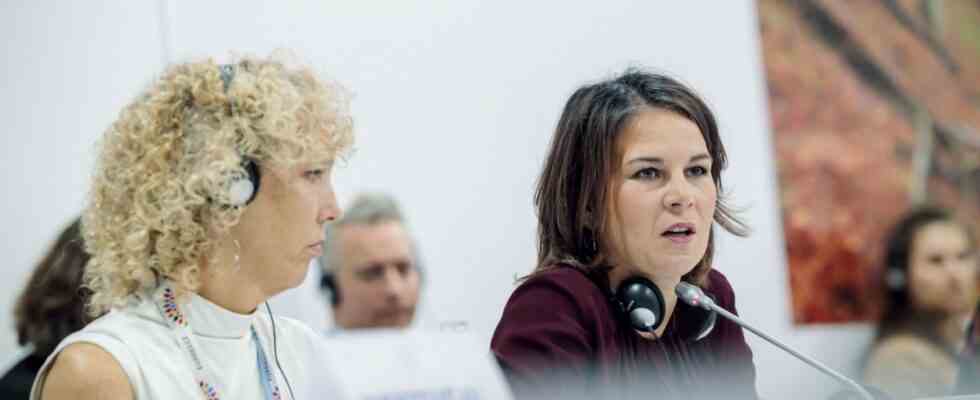Actually, it would have been over on Friday. But now the world climate conference COP27 in Egyptian Sharm el-Sheikh is being extended. It will continue on Saturday to give delegates more time to reach agreement on contentious issues. In the past, UN meetings have often been extended. Participants had already expected this this time. Foreign Minister Annalena Baerbock also expected that. She said, “I’ve packed my bags for the whole weekend.” None of the open questions are unsolvable, said the Green politician. She thinks: “Worse than no result would be a result that weakens, waters down or even reverses the consensus of Glasgow and Paris.”
One of the contentious points is the issue of compensation payments to poorer countries for climate-related damage. After deliberations late Thursday evening, the participants from around 200 states presented a five-page draft with three possible concrete steps. Mentioned are the immediate establishment of a new fund, alternatively the establishment of a new fund at the next climate conference in Dubai at the end of 2023, and a more general “financing agreement”.
With the draft, an agreement on the biggest point of contention at this year’s conference seems to be within reach. The concept of damage and losses is used to discuss how the consequences of climate change can be shouldered together in poorer countries, which have often contributed less to the damage. More than 130 participants call for the establishment of a financial pot. The paper speaks of the “urgent and immediate need for new, additional, predictable and appropriate financial resources” on the issue. This should support developing countries that are most vulnerable to damage caused by climate change.
EU Climate Commissioner Frans Timmermans made an offer in the plenum for a fund financed by a “broad donor base”. The fund should be part of a “mosaic of solutions” that also includes looking at debt and reforming development banks. Equally important are advances in reducing climate-damaging emissions, Timmermans said. These measures and the issue of damage and casualties are “two sides of the same coin”.
Pakistan’s Ambassador Nabeel Munir described the offer as “good news”. Maldives Environment Minister Shauna Aminath said she was “encouraged by the goodwill in the room”. And the representative of Barbados paid tribute to the “movement” of the EU. Resistance came from those whom Timmermans wants to dig into his pockets with his “broad donor base,” such as China and Saudi Arabia. On the industrialized side, the EU was supported by the British, Australians, Norwegians and Swiss. The US has firmly opposed a fund for losses and damages.
Foreign Minister Baerbock is counting on the EU initiative to bring about a breakthrough at the conference. She spoke of a “big step” on Friday. Baerbock appealed to other developed and emerging countries to join the EU proposal. “Europe is on the side of the most vulnerable,” she said. “Others can now show where they are now,” she added, alluding to the United States or China.
There is no precise definition of damage and loss caused by climate change. It is usually understood to mean damage after extreme weather events – such as droughts or floods – as well as through slow changes in the course of global warming, such as rising sea levels or desertification. It is about consequences beyond what people can adapt to, or about situations where the means to adapt are lacking.
UN Secretary-General Guterres: “The climate clock is ticking”
UN Secretary-General António Guterres flew to Egypt again after the G-20 summit in Bali to put pressure on. “The climate clock is ticking and confidence continues to wane,” he warned. The participants of the climate conference could change something, here and now. “I call on you to act – and quickly,” he warned.
According to the Egyptian COP President Samih Schukri, no result has yet been achieved on the subject of curbing climate change. The international community is expected to reaffirm the goal of stopping global warming at 1.5 degrees Celsius. How this is to be achieved in concrete terms is much more controversial: the draft for a final declaration on Friday morning calls for a gradual phase-out of climate-damaging coal, but the demand by a number of states and climate activists to also bid farewell to oil and gas is stated in the ten-page Paper but not picked up.

